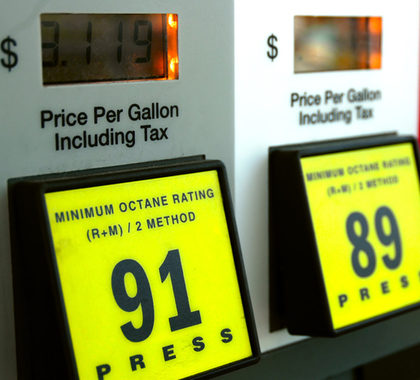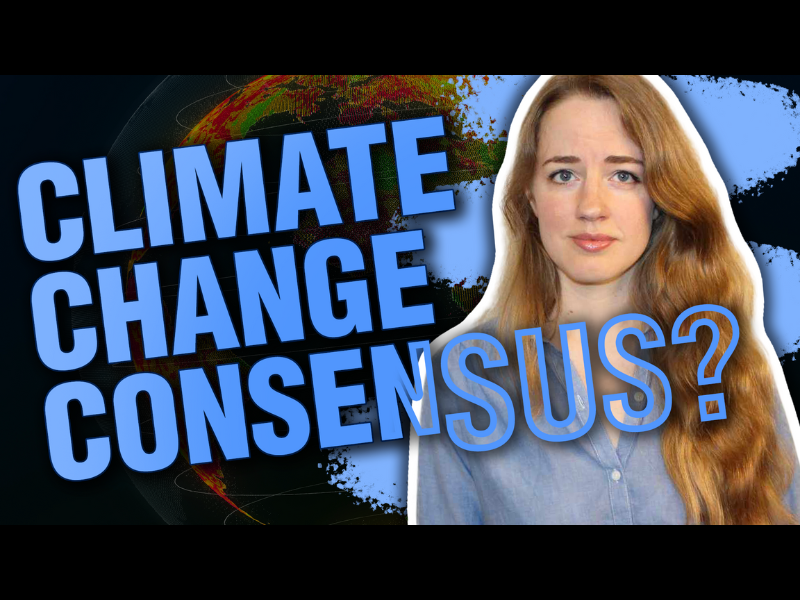An Environmental Protection Agency (EPA) draft technical assessment report released in July 2016 says U.S. automobile manufacturers are not on pace to meet the updated Corporate Average Fuel Economy (CAFE) standards set by the Obama administration in 2012 – even though the report says the manufacturers have the technical ability to do so.
CAFE standards were created by the Energy Policy Conservation Act in 1975. They were passed in response to the oil embargo imposed by the Organization of Arab Petroleum Exporting Countries in 1973. CAFE imposes fees on car and truck manufacturers if they fail to achieve minimum targets for sales-weighted average fuel economy, which is expressed in miles per gallon (mpg). The 2012 CAFE standards mandate a current fuel economy of 35.5 mpg fleetwide. By 2025, CAFE will rise to 54.5 mpg fleetwide.
Car and light-truck emissions in the United States account for only 1.5 percent of all human-caused greenhouse gas emissions, a fraction that will become even smaller as emissions from developing countries rise. Even the Obama administration’s rosiest of projections say CAFE standards will decrease global temperatures by only 0.007 to 0.018 degrees Celsius by 2100.
Limits on vehicle emissions of hydrocarbons, carbon monoxide, and nitrous oxide are set in grams per mile and are identical for every passenger car or light truck, as appropriate, regardless of their fuel economy. Higher CAFE standards, therefore, would not reduce air pollution. Higher CAFE standards could actually increase emissions by encouraging more driving – called the “rebound effect” – discouraging ride-sharing, and diverting investment and innovation from genuine breakthrough technologies into compliance with regulations that have little to do with real-world environmental effects.
CAFE standards add thousands of dollars to the price of new cars and increase the price for used cars. A Heritage Foundation Backgrounder found, relying on Bureau of Labor Statistics data, while CAFE standards remained “relatively static” from the mid-1990s through 2008, the quality-adjusted average price of new automobiles fell. Through the Energy Independence and Security Act of 2007 and the Obama administration’s subsequent update of them in 2009, the federal government mandated a large jump in efficiency standards. Since the efficiency standards were expanded, the price of the average car has increased by $6,200 above the previous trend.
“Although one cannot prove that the price increase occurred because of the tightening of CAFE standards,” the Heritage authors wrote, “the increase is consistent with researchers’ earlier predictions of the effects of the new regulations.” Heritage says freezing CAFE standards at the 2016 level would save car purchasers $3,400 in 2025 and repealing them entirely would save purchasers, almost immediately, $3,800.
The best way to achieve fuel economy is to build lighter cars. These lighter cars do not protect passengers as well as heavier vehicles during a traffic accident. According to a 2002 National Academy of Sciences report, “For every 100 lbs. reduction in vehicle weight in the average car or average light truck the change in overall motor vehicle crash deaths is 1.13 percent or 250 deaths.” The NAS study finds existing fuel economy mandates have caused 1,300 to 2,600 deaths annually since they have been in effect since 1978.
“How many deaths have resulted [from CAFE standards]?” asks J.R. Dunn, a consulting editor for the American Thinker. “Depending on which study you choose, the total ranges from 41,600 to 124,800. To that figure we can add between 352,000 and 624,000 people suffering serious injuries, including being crippled for life. In the past thirty years, fuel standards have become one of the major causes of death and misery in the United States – and one almost completely attributable to human stupidity and shortsightedness.”
Some CAFE advocates claim the benefits of purchasing cars and trucks with better fuel economy are undervalued by buyers because they are shared with other people. This would be the case if CAFE mandates helped the nation achieve energy independence, fight global warming, or achieve other social benefits. But even the National Highway Traffic Safety Administration believes this is false.
Policymakers should express their opposition to federal CAFE standards. The idea that consumers can be made better off by restricting their freedom to choose – the presumption that lies at the bottom of all proposals to impose or raise CAFE standards – is false. Consumers are better positioned than regulators to choose the size, fuel economy, and other features of the cars and trucks they buy. There is no public policy justification for taking away people’s freedom to choose their vehicles. Allowing consumers to choose and manufacturers to compete is a much more effective and efficient way to advance the public good.
The following documents provide more information on CAFE standards.
Ten State Solutions to Emerging Issues
https://heartland.org/publications-resources/publications/ten-state-solutions-to-emerging-issues?source=policybot
This Heartland Institute booklet explores solutions to the top public policy issues facing the states in 2016 and beyond in the areas of budget and taxes, education, energy and environment, health care, and constitutional reform. The solutions identified are proven reform ideas that have garnered significant support among the states and with legislators.
Ten Principles of Energy Policy
https://heartland.org/publications-resources/publications/ten-principles-of-energy-policy?source=policybot
Heartland Institute President Joseph Bast outlines the ten most important principles for policymakers confronting energy issues, providing guidance to help withstand ongoing changes in markets, technology, and policies adopted in other states, supported by a thorough bibliography.
Fuel Economy Standards Are a Costly Mistake
https://heartland.org/publications-resources/publications/fuel-economy-standards-are-a-costly-mistake-1?source=policybot
This Heritage Foundation Backgrounder argues Corporate Average Fuel Economy (CAFE) standards have added thousands of dollars to new-car prices, costing consumers at least $3,800 per vehicle since 2009. CAFE standards have a minimal impact on global warming – less than two hundredths of a degree Celsius in 2100, according to the Obama administration’s optimistic estimate. These standards easily fail the cost-benefit test by a huge margin.
The U.S. Automotive Market and Industry in 2025
https://heartland.org/publications-resources/publications/the-us-automotive-market-and-industry-in-2025?source=policybot
This study conducted by the Center for Automotive Research (CAR) estimates the likely parameters of the U.S. motor-vehicle market and industry in 2025. The first section provides a general outlook for the U.S. motor-vehicle market in the year 2025 based on long-term social and economic factors. The second section of this study discusses the effect higher fuel economy mandates will likely have on the American consumer who purchases a new light vehicle in 2025.
The Principle of Targeting in Energy and Environmental Policy
https://heartland.org/publications-resources/publications/the-principle-of-targeting-in-energy-and-environmental-policy?source=policybot
This Research Bulletin, authored by Ross McKitrick of the Fraser Institute, argues the principle of targeting is usually ignored when shaping energy and environmental policy and that this principle should be used as a standard rule for policymaking. The core idea behind the principle of targeting is if a new regulation of some sort is required in the form of a restriction on an economic quantity or price, the most efficient intervention targets the specific variable of direct interest, rather than trying to manipulate it through indirect regulations on surrogate quantities or activities where the regulators have no actual, direct interest.
Avoiding the Regulatory Cliff: A Bipartisan Agenda to Restore Limited Government and Revive America’s Economy
https://heartland.org/publications-resources/publications/avoiding-the-regulatory-cliff-a-bipartisan-agenda-to-restore-limited-government-and-revive-americas-economy?source=policybot
This Competitive Enterprise Institute compendium, edited by Ivan Osorio and Wayne Crews, highlights four important lessons policymakers should remember when approaching public policy: Markets are dynamic and they encourage experimentation, but policymakers should be aware of the unforeseen consequences of actions and should act “like market-growing gardeners, not blueprint-writing engineers.”
Obama’s Automotive Fuel Standards Must Go
http://www.cato.org/publications/commentary/obamas-automotive-fuel-standards-must-go
Writing for the Cato Institute, Peter Van Doren and Jerry Taylor, say in this article, which originally appeared in Forbes, CAFE standards have a “well-earned spot in most economists ‘top-10’ list of bad or sub-par regulations.” Van Doren and Taylor say the standards need to be repealed.
Nothing in this Research & Commentary is intended to influence the passage of legislation, and it does not necessarily represent the views of The Heartland Institute. For further information on this and other topics, visit the website of Environment & Climate News at https://heartland.org/Center-Climate-Environment/index.html, The Heartland Institute’s website at http://heartland.org, and PolicyBot, Heartland’s free online research database, at www.policybot.org.
The Heartland Institute can send an expert to your state to testify or brief your caucus; host an event in your state; or send you further information on a topic. Please don’t hesitate to contact us if we can be of assistance! If you have any questions or comments, contact John Nothdurft, Heartland’s director of government relations, at [email protected] or 312/377-4000.





